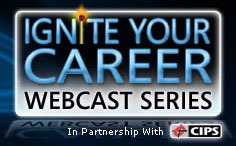This article originally appeared in Canadian Developer Connection.
We held a Windows 7 Installfest yesterday as part of the cross-Canada EnergizeIT tour. The idea is pretty simple: invite developers, IT pros and early adopters of all stripes to the Microsoft Canada Headquarters in Mississauga, provide them with DVDs of the Windows 7 beta, walk them through the installation process and show them what the upcoming operating system can do!
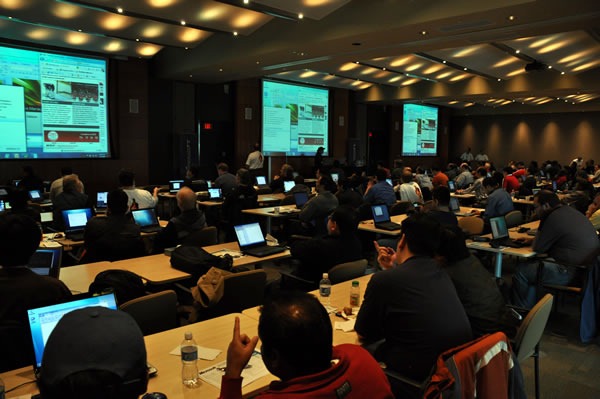
We held two sessions on Saturday, one in the morning, one in the afternoon. Both sessions were hosted by IT Pro Evangelist extraordinare Rick Claus, who with his signature Tilley hat and friendly delivery style ran them with great fanfare and high praise from many participants. Rick gave a quick presentation walking the crowd through the basics of the installation process, demonstrated a number of Windows 7 features and covered other topics such as creating a bootable USB stick with a Windows 7 installer.

The event wouldn’t have been possible without the able assistance of our proctors. They were volunteers from the local IT community who believed in Windows 7 so much that they were willing to spend a Saturday morning and afternoon helping people install a beta version on their computers. Thanks, guys – without your help, we would’ve been swamped!
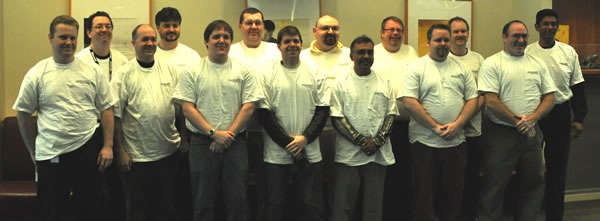
I was also there for both sessions, helping Rick out as well as doing my own demonstrations showing all kinds of software than ran “right out of the box” on Windows 7, from Visual Studio 2008 and XNA (I showed them my incredibly simple and incredibly dumb prototype for a game based on the move Zardoz), to Far Cry 2 to the music synthesizer/production app FL Studio, which I used to build a hip-hop backbeat on the fly.
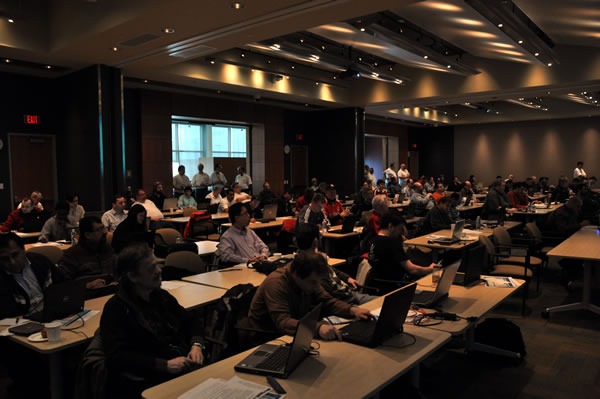
Also present was IT Pro Evangelist Damir Bersinic, who along with Anne Murakami and Cristina Ferreira from our partner company Maritz Canada, made sure that everything ran smoothly, from making sure that the room was set up to signing in the attendees to getting not just enough mini-burgers to feed the crowd, but also enough to haunt Rick’s dreams for the next week.

Most of the people who came brought laptop computers. A couple brought netbooks. Some people who really wanted Windows 7 brought desktop systems, and they weren’t tiny ones, either! Here’s one that got brought in, complete with a decent-sized monitor and webcam! The system was so new that it still had all the feature stickers on it.

The “Flashy Chassis” award goes to this guy, whose pimped-out enclosure got a lot of oohs and ahhs. Speaking as a guy who walks around town and tech conferences with an accordion on his back, I applaud personal expression of all kinds and salute this gentleman with a filet mignon on a flaming sword! I plan to build a gamer/music studio PC rig at some point, and you’d better believe it’s going to be at least this decked out:
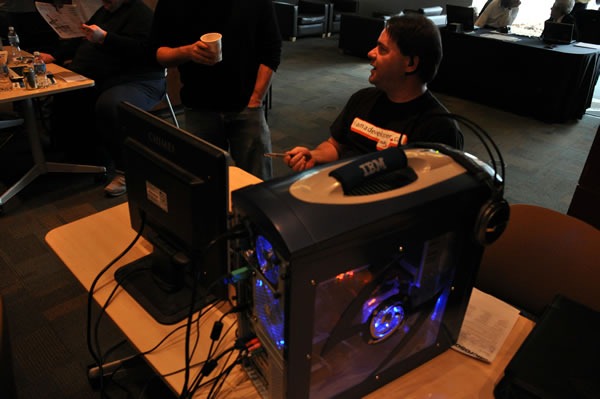
Ages ago, a full two years before The Empire hired me, they sent me an Acer Ferrari 1000 as part of program to get prominent Canadian bloggers interested in Vista. I still have it…

…but it no longer has Vista. Under Windows 7, it feels a little snappier. I plan to use the machine, which is now a couple of years old and whose specs are a bit lower than than developer-grade laptops that The Empire provides me, as a “reality check” device, where I’ll test applications that both Microsoft and I develop.

I never thought I’d see the day when people would get jazzed about an upcoming Windows operating system, never mind sign up in droves to get their hands on a pre-release version, but that’s just what happened. The room was filled with geek love and techno-lust for Windows 7.
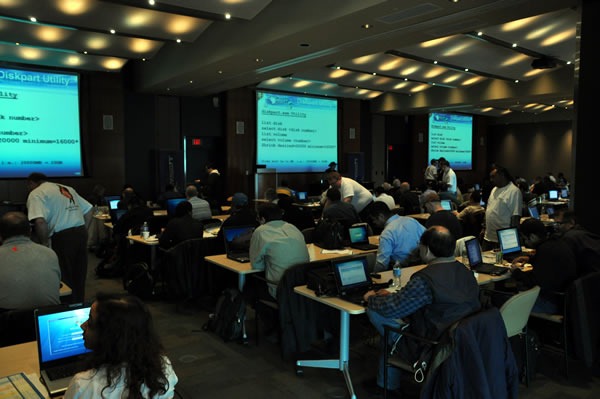
It was also great to meet new people and make new connections with the tech community at large, and they in turned seemed quite happy to meet some of the actual human faces that make up Microsoft. When we asked the audience if they’d like to see more Saturday events like this, they responded with a resounding “YES!”, and we’re keeping that in mind as we plan events for 2009 and beyond.
All in all, the Toronto Area Windows 7 Installfest was a lot of fun, and from where I stand, it was a great success! Thanks to everyone who attended and helped out!
 ComputerWorld has a report citing a couple of interesting poll results:
ComputerWorld has a report citing a couple of interesting poll results:

